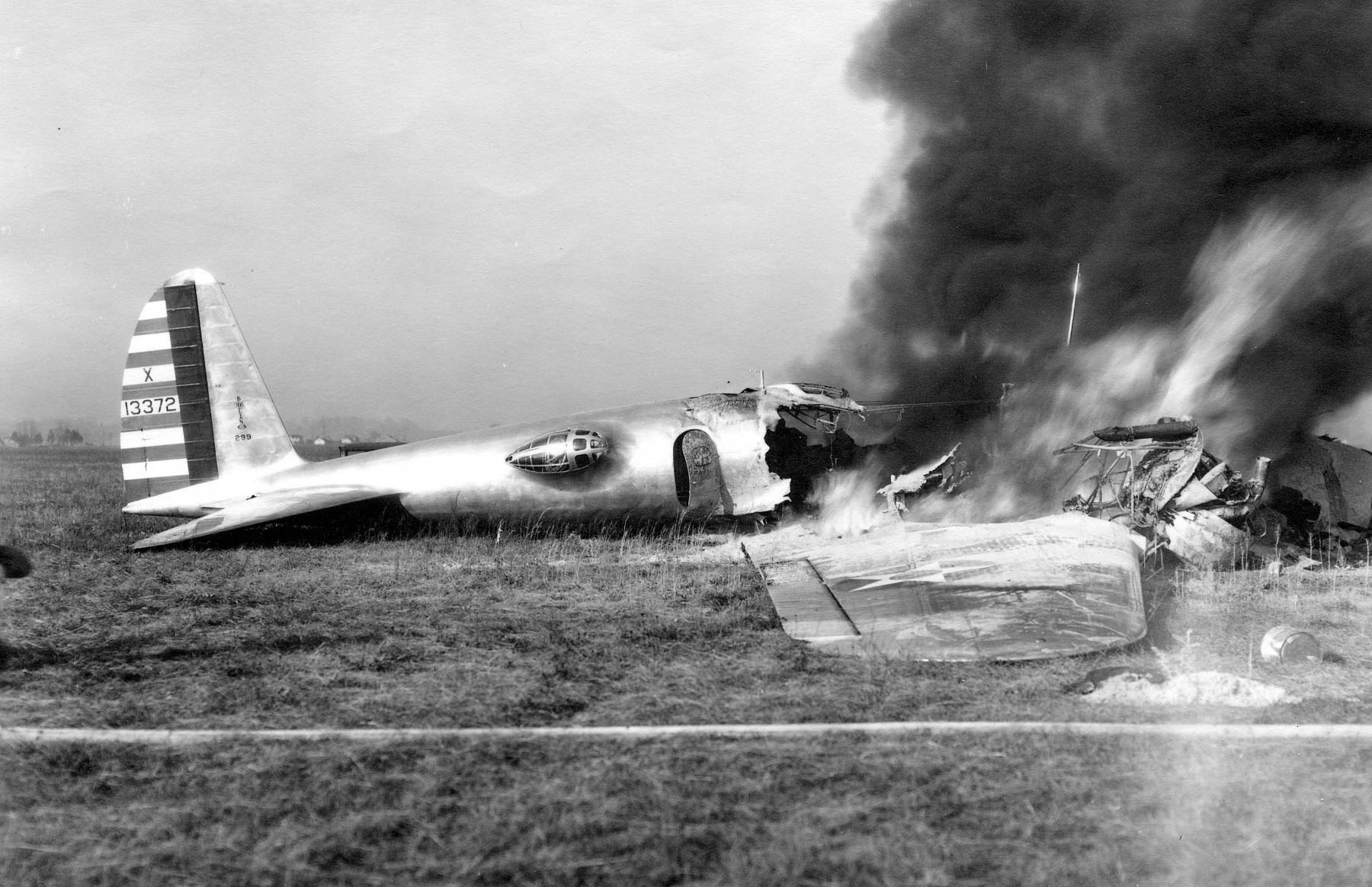The 1935 plane crash that almost destroyed Boeing


A free daily email with the biggest news stories of the day – and the best features from TheWeek.com
You are now subscribed
Your newsletter sign-up was successful
Boeing, the world's largest aerospace company, has lost $29 billion in market value since Sunday's crash of an Ethiopian Airlines Boeing 737 MAX 8 jet, with all 157 people on board killed. Most countries and airlines have grounded their 737 MAX 8 aircraft, U.S. lawmakers and others have called for the FAA to follow suit, and Boeing's fastest-selling aircraft ever now faces uncertain skies.
Boeing has a lot riding on the 737 MAX. But 85 years ago, it bet everything on its Model 299, later called the B-17 — and it nearly lost everything when its "Flying Fortress" crashed during a key test flight. Two highly experienced test pilots died.
In 1934, the U.S. government forced Boeing to spin off United Airlines and United Technologies, and rival "Douglas was really starting to dominate the American aircraft industry," Roger Connor, a curator at the Smithsonian National Air and Space Museum, told NPR's Hidden Brain in February. "Their DC-2 was becoming the hot passenger airliner and was quickly putting Boeing into the background in that industry."
The Week
Escape your echo chamber. Get the facts behind the news, plus analysis from multiple perspectives.

Sign up for The Week's Free Newsletters
From our morning news briefing to a weekly Good News Newsletter, get the best of The Week delivered directly to your inbox.
From our morning news briefing to a weekly Good News Newsletter, get the best of The Week delivered directly to your inbox.
Company founder Bill Boeing resigned in 1934, and Claire Egtvedt took over and essentially "bet the company" on the Model 299, a four-engine next-generation bomber, Boeing in-house historian Mike Lombardi recounted last year to Seattle's KIRO radio. The U.S. Army Air Corps, precursor of the Air Force, announced a head-to-head contest for a major government contract in 1935; Boeing, Douglas, and Martin entered bombers, and Boeing was the clear frontrunner. As Seattle historian Feliks Banel recounts, the Boeing plane crashed on its second flight, on Oct. 30, 1935.
"Everything the company had went into this prototype and there it was, a burning wreck on the field," Lombardi told Banel. "We didn't have an airplane to finish and Douglas won. So that was the end of the Boeing Company." The Army placed a large order for Douglas B-18 Bolo bombers — but using a loophole, it also ordered 13 Boeing B-17s in January 1936. That "relatively small contract literally saved the company," Banel said. The B-17 proved to be the superior aircraft, and more than 12,000 were built during World War II.
The crash of the Model 299 — attributed to human error and technological innovation — also led to the creation of the preflight checklist, Hidden Brain explains below. The Boeing part starts at the 3:40 mark. Peter Weber
A free daily email with the biggest news stories of the day – and the best features from TheWeek.com
Peter has worked as a news and culture writer and editor at The Week since the site's launch in 2008. He covers politics, world affairs, religion and cultural currents. His journalism career began as a copy editor at a financial newswire and has included editorial positions at The New York Times Magazine, Facts on File, and Oregon State University.
